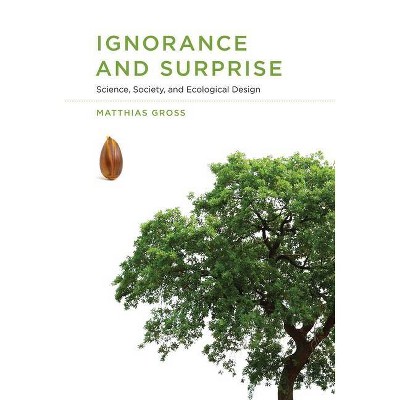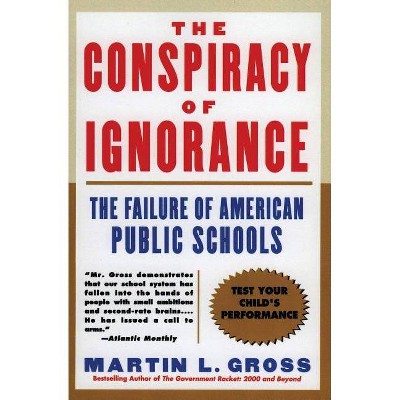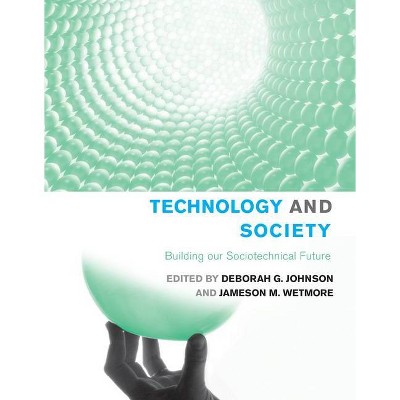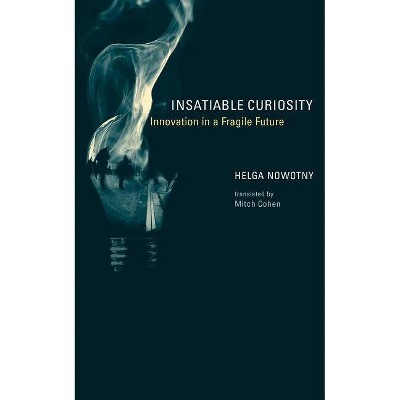Ignorance and Surprise - (Inside Technology) by Matthias Gross (Paperback)

Similar Products
Products of same category from the store
AllProduct info
<p/><br></br><p><b> About the Book </b></p></br></br>The relationship between ignorance and surprise and a conceptual framework for dealing with the unexpected, as seen in ecological design projects.<p/><br></br><p><b> Book Synopsis </b></p></br></br><b>The relationship between ignorance and surprise and a conceptual framework for dealing with the unexpected, as seen in ecological design projects.</b> <p/>Ignorance and surprise belong together: surprises can make people aware of their own ignorance. And yet, perhaps paradoxically, a surprising event in scientific research--one that defies prediction or risk assessment--is often a window to new and unexpected knowledge. In this book, Matthias Gross examines the relationship between ignorance and surprise, proposing a conceptual framework for handling the unexpected and offering case studies of ecological design that demonstrate the advantages of allowing for surprises and including ignorance in the design and negotiation processes. <p/>Gross draws on classical and contemporary sociological accounts of ignorance and surprise in science and ecology and integrates these with the idea of experiment in society. He develops a notion of how unexpected occurrences can be incorporated into a model of scientific and technological development that includes the experimental handling of surprises. Gross discusses different projects in ecological design, including Chicago's restoration of the shoreline of Lake Michigan and Germany's revitalization of brownfields near Leipzig. These cases show how ignorance and surprise can successfully play out in ecological design projects, and how the acknowledgment of the unknown can become a part of decision making. The appropriation of surprises can lead to robust design strategies. <p/>Ecological design, Gross argues, is neither a linear process of master planning nor a process of trial and error but a carefully coordinated process of dealing with unexpected turns by means of experimental practice.<p/><br></br><p><b> Review Quotes </b></p></br></br><br>Gross' book is an excellent contribution to the analytical terrain of uncertainty in studies of science-society relations and will bode well for scholars interested in expanded societal membership in the production of knowledge.--<i>Metascience</i>--<br><p>[A]n excellent historiography of social science philosophies of learning.</p>--<i>International Social Science Review</i>--<br><p>What kinds of science will help us navigate the Anthropocene? Matthias Gross's book takes an important step toward answering that question.</p>--<i>Science as Culture</i>--<br><p>A nicely focused approach to joining theory and practice for shaping the environment for human use.</p>--<i>Building Research & Information</i>--<br><p>Offers an important postnormal model of a science that counters the absolute pronouncements and rhetoric of a traditional science that fears ignorance and surprise, but that at the same time preserves the best parts of the scientific enterprise...Highly recommended.</p>--<i>Choice</i>--<br><p/><br></br><p><b> About the Author </b></p></br></br>Matthias Gross is Senior Researcher in the Department of Urban and Environmental Sociology at Helmholtz Centre for Environmental Research-UFZ.
Price History
Price Archive shows prices from various stores, lets you see history and find the cheapest. There is no actual sale on the website. For all support, inquiry and suggestion messagescommunication@pricearchive.us




















